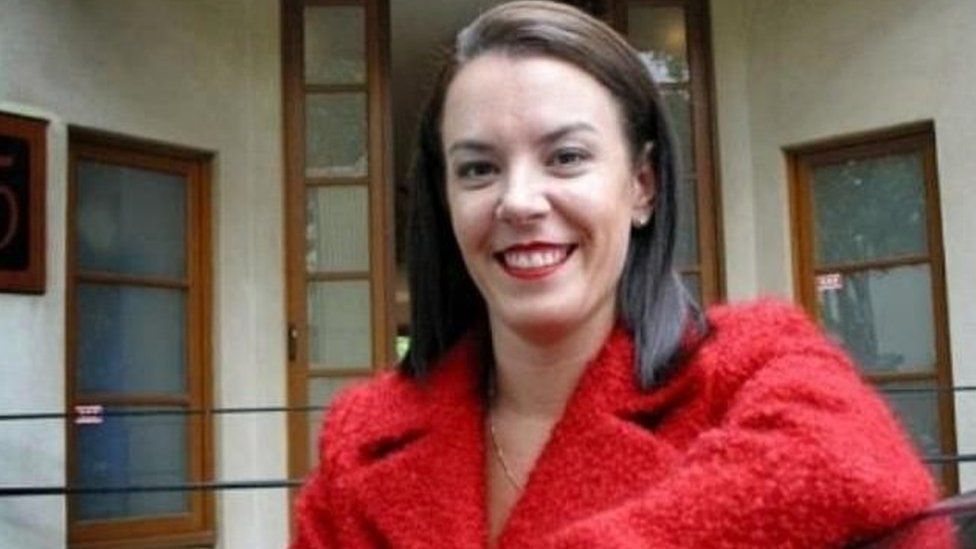ARTICLE AD BOX
 Image source, Supplied
Image source, Supplied
Melissa Caddick went missing in 2020 after police agents raided her home
By Tom Housden
BBC News, Sydney
When conwoman Melissa Caddick vanished from her luxurious eastern Sydney home in November 2020 - with only her partially decomposed foot found washed up on a beach months later - it set off a frenzy in Australia.
The case blindsided investors, baffled police, and captured the imagination of a nation.
The fraudster has inspired a hit podcast, a TV dramatisation, and countless outlandish theories - including that she had been swallowed by a shark or had severed her own foot to throw police off her scent.
A long-running inquest into the case heard of a flawed police investigation, conflicting accounts from her husband, and all the extensive speculation surrounding her fate.
But a coroner on Thursday ruled that exactly what happened to her would remain a mystery.
"The conclusion I have reached is that Melissa Caddick is deceased. However... I do not consider the evidence enables a positive finding as to how she died, or when and where this happened," Deputy State Coroner Elizabeth Ryan wrote.
The final morning
For most, the Melissa Caddick story began with the news that she was missing.
But her life had actually begun to unravel months earlier when Australia's financial watchdog was tipped off that she had been using a friend's financial adviser's licence, having simply pasted in her own name on the document.
The Australian Securities and Investments Commission (Asic) found she had been conning clients for years, using methods such as forging her boss's signature on cheques and altering financial documents with correcting fluid to award herself higher fees.
Regulators suspect she stole more than A$23m (£12m; $15m) from more than 60 clients, including many of her family and friends, to help fund a lavish lifestyle.
There were overseas trips on private jets, high-end cars, designer clothes, and expensive jewellery.
And so when police knocked on Ms Caddick's door at dawn on 11 November 2020, they allege the 49-year-old knew she was in trouble.
Conflicting accounts
The last confirmed sighting of Melissa Caddick was by officers at the raid on her home.
Her husband, Anthony Koletti, told police they believed she had gone for an early run the next morning. Her car and all her personal belongings had been left behind.
But she was not reported missing by Mr Koletti for more than 30 hours, and only after he had dialled in to a court hearing that she was due to attend and appeared surprised she had not turned up.
Police initially explored two theories - that Caddick was still alive and had gone into hiding to escape justice, or had taken her own life.
But the inquest heard how Mr Koletti, a hairdresser and part-time DJ, behaved erratically in the wake of his wife's disappearance, leading police to suspect he could be involved.
Mr Koletti has denied any knowledge of his wife's crimes or any involvement in her disappearance, and police say they have uncovered no evidence to dispute that.
Image source, Getty Images
Image caption,Anthony Koletti has denied any knowledge of his wife's crimes
An investigator told the coroner's court that Mr Koletti had visited a cliff top area near their home and taken a photograph of a shoe print, an action the policeman described as "extraordinary".
"He didn't appear to be overly concerned," Lead Detective Sergeant Michael Kyneur said.
The inquest also heard that Mr Koletti had sent texts from Caddick's phone pretending to be her, told police he was "too busy" to attend an interview, and gave conflicting versions of events.
For example, he was able to provide a description of what his wife was wearing on the morning she vanished, despite also saying he had not actually seen her, police said.
Mr Koletti had also recounted his version of events by releasing a musical concept album containing tracks with titles such as "Melissa Is Missing" and "Above the Law".
It was "regrettable" that Mr Koletti had not given a "full and frank" account of what had happened, Magistrate Ryan said on Thursday.
Gruesome discovery
The case took a grisly twist in February 2021 with the discovery of a rotting, trainer-clad foot on a remote beach 500km (310 miles) south of Sydney.
Experts matched the body part to Caddick through DNA, but an autopsy couldn't determine if it was separated by force or decomposition.
The inquest heard a slew of theories to explain how it ended at Bournda Beach. Among the explanations put forward was that a shark ate her and later regurgitated her body parts.
Police were at a loss too, the court heard, and even considered throwing pig carcasses with running shoes on their trotters into the sea to determine how shark behaviour or ocean currents could have played a role.
But a science journalist dismissed lurid speculation that Caddick could have severed her own foot.
"The complicated arrangement of bones at the top of the foot and the ankle … makes it almost impossible to get a clean slice without cutting through bone," Erika Engelhaupt told the Sydney Morning Herald.
Scientists put forward a simple explanation at the inquest. Oceanographers said currents could have easily carried the foot that distance, while a pathologist described how human feet can become detached from bodies during decomposition.
The inquest also heard criticism of police handling of the case.
Officers assigned to the Caddick case stuck too closely to their view that she had voluntarily vanished, some said.
Image source, Getty Images
Image caption,Police combed the cliffs in Dover Heights for any trace of Ms Caddick
A crime scene examination of the house was not done until 19 days after Caddick disappeared, and a lawyer assisting the coroner questioned why the homicide squad wasn't brought in immediately, if only to rule out foul play.
Another detective expressed surprise that NSW Police only sought out the corporate watchdog's affidavit on Caddick - which outlined its case against her - some months after her disappearance.
The inquest was also told that Caddick had a life insurance policy, which included suicide cover, and had made a number of references to ending her life over the years - but police initially devoted limited resources to this line of inquiry.
Magistrate Ryan on Thursday said the uncovering of Caddick's deception may have triggered a "narcissistic injury", with the illusion of her wealth and success shattered.
"The Asic investigation and search warrant very likely caused her a catastrophic level of shame and despair," she said.
"She may well have reached the conclusion that ending her life was the only option."
But the manner of her death will ultimately remain unresolved, she said.

 1 year ago
14
1 year ago
14








 English (US)
English (US)